Graham Reid | | 22 min read
Reel You In
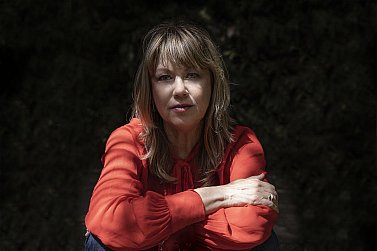
Above our heads the speakers are playing some uninterrupted selection of classic rock: Zeppelin, Elton, Eagles and all the usual suspects.
This is familiar music calculated not to offend the patrons of the excellent Beer Spot in Morningside.
But on this Wednesday lunchtime there is only Dianne Swann and me.
We're here to have a beer or two and talk about her new album The War on Peace of Mind.
After a lengthy career Swann has, for this album, stepped away from being in a band and this one is coming out under her own name. In fact, after more than 35 years since she first emerged with Everything That Flies, this is her debut album in a sense.
It is a tight collection of just eight focused songs, among them one titled The Cynic in which she says, “When I meet the critic, I have a panic attack”.
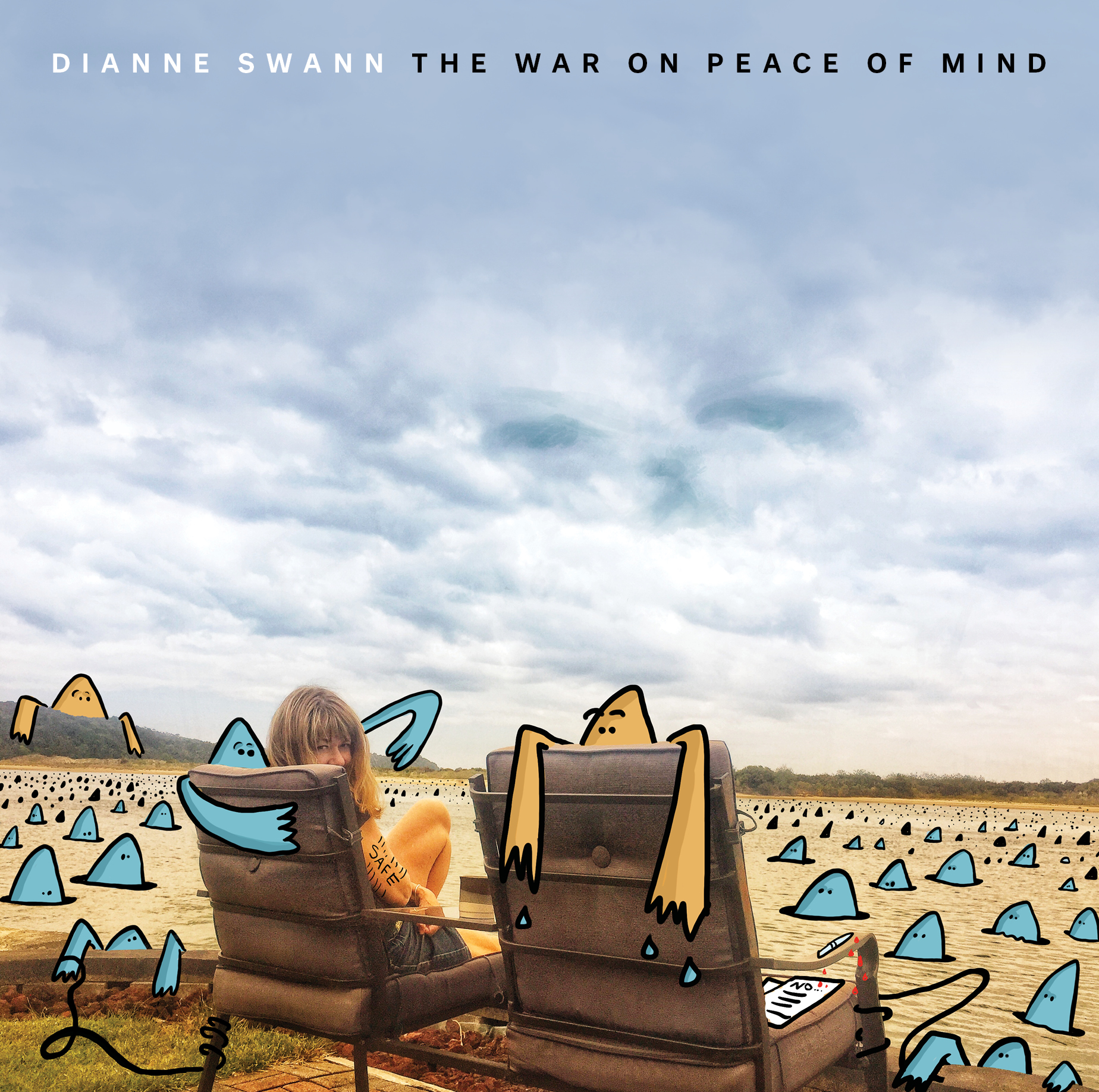 But before our attention turns to the album, we chat about the recent tax imposed on property investors ('So investors taxed on their income, well who isn't?'), something about the state of the nation and so on.
But before our attention turns to the album, we chat about the recent tax imposed on property investors ('So investors taxed on their income, well who isn't?'), something about the state of the nation and so on.
What followed was a digressive, informative conversation with one our smartest songwriting talents, a singer who has always been in demand.
For those who don't know her background, here's the Swann synopsis: Her first band in the mid Eighties Everything That Flies was successful but short-lived and Swann came to wider attention in the all-woman covers band When the Cats Away in 1987 alongside Debbie Harwood, Kim Willoughby, Annie Crummer and Margaret Urlich.
For years they were one of the country's most successful and popular bands.
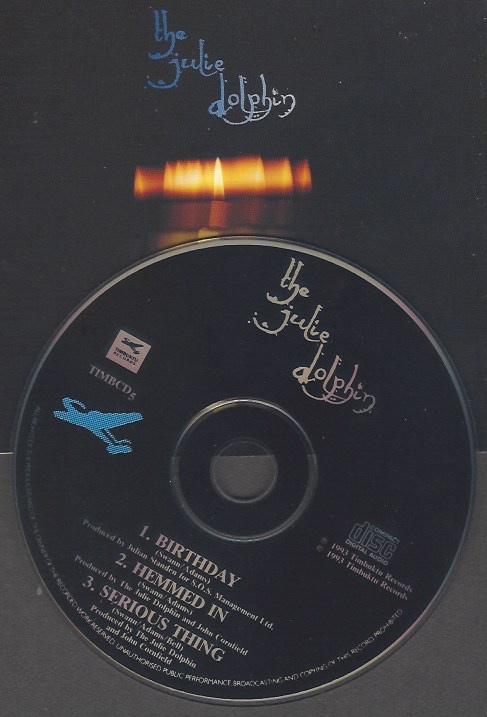 She left for Britain after a disappointment (which she tells us below) and her first band there was The Julie Dolphin (with guitarist and current partner Brett Adams) which won the admiration of audiences, Radiohead and critics.
She left for Britain after a disappointment (which she tells us below) and her first band there was The Julie Dolphin (with guitarist and current partner Brett Adams) which won the admiration of audiences, Radiohead and critics.
But she and Adams returned to New Zealand in 2003 following another disappointment. They came home and formed the Bads and for more than a decade and half they have had critical acclaim and won a loyal following . . . but never penetrated the top echelons of New Zealand's musical landscape.
She is a much respected singer and admired by those who have seen her live or spent time with her crafted writing.
And now she has The War on Peace of Mind, the first album under her own name.
This is her first interview about the album and she admits she is nervous.
After much other chit-chat we start with . . . .
Anyway let's talk about you . . .
Do we have to ?
You know what people like me are going to ask you immediately.
What? Why solo?
No. Are you having a panic attack?
Totally.
Well you wrote about it, you said that.
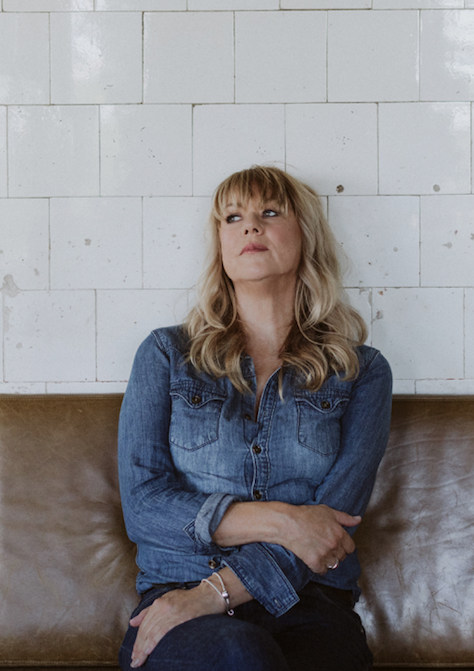 Which one? Oh, the panic attack in The Cynic [laughs]. I thought about that and I didn't actually mean a critic who does that as a job but how you get critical. Basically you don't like it when you are criticised but you criticise others. All those people [in the song she mentions a cynic as well] I name could also be me.
Which one? Oh, the panic attack in The Cynic [laughs]. I thought about that and I didn't actually mean a critic who does that as a job but how you get critical. Basically you don't like it when you are criticised but you criticise others. All those people [in the song she mentions a cynic as well] I name could also be me.
I like that, we knew someone who was highly cynical and had no reason to be but had adopted that as a substitute for having a personality.
It's hard when you are talking with a cynic because for me I'm thinking, 'I don't agree with you' but after a while I feel like I'm just being antagonistic by saying, 'No but . . . ' all the time.
So it is a really difficult situation. You give up, they aren't going to change.
So that song was ruminating about how I had to meet with this person and always felt uncomfortable with them because I know certain things would come up and I would sit and feel tired of it.
Even though this person and I have got a long history, it's never going to be comfortable. But what does that say about me though?
I like when the personal and universal run parallel in someone's work. As an outsider I can relate to it but that it's also the insider talking.
Yes, ever noticed how listening to music can also change depending on who you are listening with? They don't even need to say anything because you are hearing it how they are hearing it.
Like being with kids when they are hearing something for the first time.
Yeah, exactly.
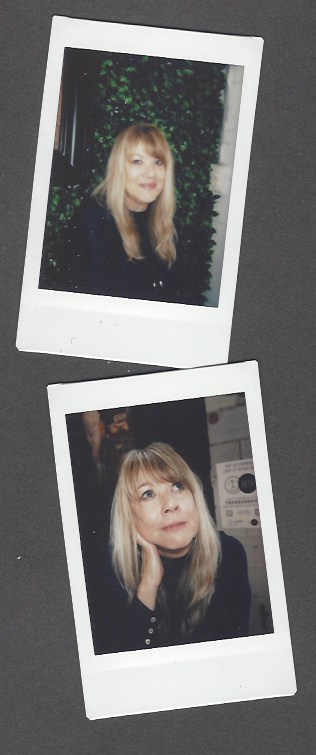 There's quite a lot of personal stuff on this album.
There's quite a lot of personal stuff on this album.
Yes, but I hoped that it was also relatable rather than going down a rabbit hole.
When I said you know what I'm going to ask, you immediately jumped in with 'Why solo'? When I look at the landscape out there I see young women coming through now and they are solo: Lorde, Benee, Robinson . . .
Yeah, people aren't in bands as much now. I've always loved being in bands and collaboration is to me the best thing. But a solo album is still about your community, and even here there are beautiful stories about longterm relationships and the people who've helped me do it.
But I was on my way to do a solo album after When the Cat's Away. I wrote for Everything That Flies then I hooked up with Cat's Away but always had an inner turmoil that it was a covers band. But as long as I was learning stuff, enjoying it and earning money, it gave me time to write, which I did.
I did a whole lot of demos with Nick Mainsbridge who became Margaret Urlich's first husband and we demoed some songs together and he was quite up about them. He took them to a few labels in Australia and Sony Australia said it was good stuff and they'd like to release it. That was the late Eighties.
So I'd spent money doing that which was my end goal, but Sony wanted to do a release in New Zealand first because I was well known here.
But the company here said no, and so I thought, 'fuck you' and I left.
That was going to be my first solo album and I have no idea why [they didn't want to release it]. It could be harking back to that time where, 'We already have a female artist on our label'.
It really upset me because I'd worked, been focussed, people knew me and I'd released a solo single [Something Good] that sat on the charts for quite a long time.
Sony Australia thought of it as a long-term thing and I guess I could have pursued it . . . but I was just really really pissed off. Pissed off enough to go to the UK!
I didn't pursue the solo thing there because that shook my confidence a bit . . . but I loved being bands.
Even though you see Chrissie Hynde you see her and the Pretenders, you see Patti Smith but also …
Yes, Fred 'Sonic' Smith is standing over there.
Exactly, it''s that camaraderie that I love.
As a woman travelling is that a safer place to be, in a group?
It's very confusing, I've spoken to Tami Neilson about that a lot. You get very lonely being in a band with boys because they instantly become brothers.
You may be pushing things along by the fact you are writing and all that, but there is just . . . something. Not always, but a lot of the time touring in the UK it was quite hard going, as far as being there.
 Was it different in Cat's Away? A sisterhood which stuck together?
Was it different in Cat's Away? A sisterhood which stuck together?
[Long pause] No, probably not. It was a sisterhood but . . . when you are in a group with people I used to psychologically compare it to being in a large family and you would take that part you would in that family.
It's really interesting being in bunches of people in the way you see yourself. But again the performance part of it was great, all that learning.
You like performing?
I've got more comfortable with it.
Do you still get nervous?
Yeah, yeah. But not as much as I used to.
When were you the most nervous?
Hmmm. I think Cat's Away helped me heaps with that, so before that. I don't know.
It can catch you by surprise, the smallest gigs can make you nervous and the biggest gigs are fine. Often I feel more nervous when I see people in the audience I know because I can see their faces and I'm like, 'I know what you are thinking', and 'I know what you are thinking'. You get distracted and instantly you are away and not there being in the song.
Let's talk about your time in the UK with The Julie Dolphin and Boom Boom Mancini. I understand both of these albums are coming out digitally and also on vinyl in the near future?
Yes. It's very exciting. Boom Boom Mancini has never been released and I tried to get my head around that but it's really great to have somebody help me do it.
Julie Dolphin's [Lit] did come out on vinyl when we first released it, but Boom Boom Mancini has never been released at all.
How do you feel about them now?
I just think it's a good body of work with those albums. And I felt that disappointment when the Mancini album [Mess Up Your Life] didn't come out. Now when I look at it, it stands up definitely. You can tell its Nineties production on both albums but the songs are strong.
Who actually cares about production? Artists and producers do but . . .
Yes, I don't think people do. Weirdly when we were doing the Live Rust shows I was talking with Sam Flynn Scott and somebody, might have been Jon Toogood, said, 'What was that song you did in Everything That Flies?' Sam was instantly on his phone listening to it and I said 'but it's really Eighties' and he said, 'No it's great'. He thought that aspect was beautiful.
My students don't think like that either. It's all on the same platform equally and they don't think that production sounds so Eighties. That said, when I was driving the other day on the radio they were playing a Dire Straits song and all I could hear was that drum sound. I couldn't listen to that anymore. But I doubt too many people would care.
True. Last night I had been reminded that years ago I sang on a Greg Johnson called The Sleeping Hour and I looked it up and it was so bloody charming. It was of that era and now that I can hear from a distance . . .
You just have to have to take it for what it was.
Distance can do that because you aren't thinking about how you felt when you were recording it. That's the thing when you just release something, it's hard to listen to it with any perspective because all that stuff is in there. Especially your own voice.
Ever met a singer who does like their own voice?
No.
It's a very naked thing to do.
Especially if you are driven to write something, it's not like Whitney Houston who can sing anything. But if you write it often means you've got a unique take. I still think those brilliant singers – with only a few exceptions – aren't necessarily the best writers. They don't always come up with the best songs.
I think of you as a writer who sings her own songs.
Yeah, I do too. I can name great singers who don't come up with great songs but their voice carries whatever they are singing.
Let's talk specifically about The War on Peace of Mind. The album strikes me as very considered. Let's start with the first song These Are The Days. When I first heard those opening lines I thought it was about women but then realized there was something bigger going on.
[Laughs]. Yes, I was thinking about Mother Earth. I was writing it [in January 2020] when Auckland's sky turned brown from the fires in Australia. It started on the West Coast where we live and it got more and more intense orange then brown. I turned the lights on because it was so dark. It just gave me this fear of what was going on. We're fucking it up. And then that whole Mother Earth thing was what this song was about: 'She's quaking . . . she's fighting back'.
I was also one of those kids who grew up with a real protectiveness towards my mum. My whole life when I was really young, really little, my dad would say, 'Don't you talk to your mum like that'.
I always looked out for her and somehow that came out in this song when I was writing about climate change.
I like the bookend: Real Good Feeling at the end. It's aggressive and political. I'm reading about the Yippies, Black Power and how musicians were fitting in or not into that and where the slogans came in. Then I heard that.
I wanted to model that on Success by Iggy Pop, just that feeling of a whole lot of chaos.
I first wrote it when I had to do a solo support – and I'm not used to doing that but am going to be doing a lot more of it – and I wanted a song to start with that felt solid, not ethereal or emotional. So I wrote that. It was around the time when the climate protests were going on and there were all these young people out there on the streets.
It was about a couple of things: wanting to perform and put a feeling out there to the audience, but also a good feeling about the world that there were people out there and we will get through it. Beaming that positivity out there.
I was feeling good about having a song to open a set with really basic chords and I could smash out. It's fun but its got feeling in it.
As I said, I like these bookends because even though this is different to the opener These Are The Days, it does push you back there. Tell me, a song on the album which you want people to listen to because it means something particular to you, what would that be? Putting aside the ones we've mentioned.
[Long pause] I think . . . weirdly . . . I feel each song has got something in its own little pocket. I suppose . . .
Well I'll say. Everything's New. I love that.
[Laughs] I was going to say that. It's taken me a long time to complete the sentiment in that song and I think I've finally wrapped it up. It's about making mistakes and finding your way, and that mistakes are important to help you find your way. And making sense of things that I've probably done in my past which seemed out of character.
I'm still learning but one of things you learn is to apologise, to say sorry. That's part of being an adult. I hear a lot of love and compassion across these songs. Fair?
I think so. I guess because I've always collaborated I want this to have my heart in this, these are all my own songs. This is my seventh album and four or five EPs and I've been conscious of the fact that when I write for other people – because through Julie Dolphin and Boom Boom Mancini and the Bads – they were mainly my own songs, although obviously some were co-written with Brett.
But I was always conscious that he was going to have to perform them too so I still wanted them to have a personal aspect. But with this album I could just go for it, every line I wanted to write, I didn't want dross or fillers.
It's only eight songs and I thought, 'Can I get away with just eight?'
I was going to do more but I felt what I wanted to express was all just there. Then I Googled 'eight song albums' and I realised a lot of my favourite albums from the late Seventies were just eight songs: Darkness on the Edge of Town which surprised me, Horses I think, Iggy, Bowie.
But yes, it is short and there were the constraints of time.
I posted a picture of me behind a microphone and [UK producer/mixer] Steve Power popped up and asked what I was doing. I said I was recording an album and he said., 'Can I mix it. Free' . . . and I said, 'Sure!'
That's karma. He produced the Boom Boom Mancini album and we started working with him . . . and one of the reasons I wanted to work with him is he'd worked with Julian Cope on World Shut Your Mouth and that is one my most favourite songs in the whole world. He'd worked with Blur, Baby Bird on that album I loved . . .
We [BBMancini] started working together with him but he hadn't worked for some time I think, he'd been really depressed. And we started recording together and he got a call from Guy Chambers saying EMI wanted him to produce Robbie Williams and would he come and do it with him?
So Steve, obviously, couldn't say no to that, and put us on hold. It was hard for us because BBMancini were in full flight but we wanted to stick with Steve because we were doing great stuff with him.
And we finished the record [Mess Up Your Life] and the day we were about to go on tour with that record we had a meeting with our manager and [the BBM's new record company] was over.
It was devastating because we'd been living in the UK for 10 years of our lives . . . it was a huge deal and Steve blamed himself.
In some way maybe that's right, if the album had come out when we wanted we could have been on our way . . . but that didn't happen.
Nobody blames Steve for it apart from Steve himself. But we'd always stayed in touch and he's a mate. He's the biggest selling producer in the UK because of Robbie . . . and then he's popping up asking to mix [The War on Peace of Mind]!
So the reason the album is short is because he said if we could get the music to him before [the UK 2020] summer he would have time and could do it.
That was at the beginning of last year. So we started tracking – just Chris O'Connor [drums], Ben King on bass and me on guitar and we did the rhythm tracks, then Dave Khan came and put some mellotron and strings on, Brett came and did a little bit of guitar on the first song which was Show Your Heart and we sent it off to the UK.
So [Steve] mixed that and it came back and it was beautiful. So we sent one more track and he went quiet. And we were worried about that.
But he'd got really sick . . . however we thought we'd keep tracking, but then we went into lockdown and the UK went into lockdown . . . so this hurried thing didn't work.
But in a way it was great because it gave me more time to think about the songs and we finished tracking after the end of lockdown here.
Time is a gift. In lockdown people had time to think.
Yeah, so I got away from thinking, 'I needed to get this to Steve' to thinking, 'I want to make it really great'. I wanted it to be the best it could be and he relaxed about the timing too . . . but the messages I was getting back he was thanking me for the opportunity to mix this record!
He said it made a difference to him, he told me it was An Important Album and something about it resonated with him as he was mixing it. Messages thanking me?
He has beautiful ears, to me the best thing about those Robbie Williams albums is the way they sound. I'm not a big Robbie fan but they sound amazing.
Also I know [Steve's] history and the things he loves in his heart.
What is that you as a musician hear in a production that the ordinary civilian doesn't?
Well, Steve mixed the album but I produced it, I made the decisions of what went on. People don't realise that Brett and I produced all our albums, right back to the Julie Dolphin – Steve produced BBMancini -- so it's not a big thing for me to know what should go on the songs. I think I hear initially the way the vocal sounds, if it's in your ear, if it's present.
Also drums. I love that you can actually hear the drums like Fontaines DC where there is such a great energy and it is surging forward and it's live.
At this point we take a long but conversational break and eat gyoza from the nearby food truck, get another beer and let the classic rock wash over us as a couple more people arrive in the Beer Spot.
We talk about those years in Britain when the Julie Dolphin were not just acclaimed by the press and public (their Birthday was single of the week in NME) but had soon-to-be-famous Britpop bands opening for them.
We laugh about Menswear and Shed Seven but also get serious about how Radiohead – who they opened for and invited her to sing on their song How Can You Be Sure – loved The Julie Dolphin because they weren't part of the Britpop media frenzy, just as Radiohead stood apart.
But then of course the Boom Boom Mancini album didn't happen so she and Brett came home, and started the critically successful Bads . . . who, as she soon notes, have not reached that populist mass of other – mostly male – artists of her generation.
Things get revealing. And a well-known music industry name is mentioned in a conversation which necessarily becomes circumspect.
But when she says she has no idea who will be interested in The War on Peace of Mind, which is her debut solo album, we put the tape on again.
No, I have no idea . . . or if anybody would want to hear it.
But c'mon,. You have a lot of of cachet out there with the Bads, you've built a reputation and an audience. I'd think there would be a lot of people out there who would be interested.
It would be good if they are but honestly, I've gone into this with no expectations. I've become more and more like that.
It's to do with the age I am, I'm 60, I don't tell many people that.
Oh so, 'time to leave the industry, Dianne'?
Yeah, it might be (laughs) Especially as an older woman you do get the attitude that, 'You're still doing it, that's so amazing'. It's so patronizing.
I even had someone pat me on the shoulder and say that. Somebody in this industry.
She tells a story of some years previous when she and Brett were supporting Tim Finn and when they came off stage. Brett walked past a major industry figure – someone who had been in Sony NZ when her solo album was rejected – and that person said to Brett, 'Amazing mate' and when she walked past that person he put his hand on her shoulder and said , 'Still doing it, eh?'
That was one of those things you don't think about until just afterwards, then you think, 'What!'
That happened so it's not just my imagination.
It seems to me there are considerably different perceptions of older men and women in the industry.
Yeah, it's like, 'Would you quietly go away now please?'
But nobody would suggest to Tim Finn that he retire?
No, and I don't know why that is.
 Well, hmmm . . . maybe we do? I would have thought and hoped and expected that because of your considerable body of work that people would be keen to hear what you are doing now.
Well, hmmm . . . maybe we do? I would have thought and hoped and expected that because of your considerable body of work that people would be keen to hear what you are doing now.
Perhaps, but I just have no idea. I suppose I feel that [Brett and I] have built a good body of work but in New Zealand we have remained still under the radar, not in the the upper echelons with the Bics, the Dobbyns, the Finns.
So I feel that is how New Zealanders judge your success. I know I'm not up there with Six60.
Who is?
[Laughs]. So I guess it's interesting having been doing this for so long . . . but once you start you can't stop. It's what I have to do. It makes me really stubborn with a sense of 'fuck you'. That's why I say I have no idea who might be interested.
I just had to do this, the songs were nagging at me and I find it really depressing to have songs circulating without anywhere to go. Once you set that intention of doing an album that's what you do, and you finish it. I don't like that feeling of having lots of snippets of songs, it makes me feel unwell.
Like having adult children sitting around the house?
It really is, they need to get off their arses and go to work [laughs] to pay the rent.
Do you feel confident it will find its audience, like the Bads have in way?
Yeah, and I always think about the wider audience and would love some way for it to do that. I feel there is something weird about Brett and I, we often get attention from overseas but not from New Zealand.
She tells of Billy Corgan of Smashing Pumpkins seeing a Bads clip on Juice TV when he was in New Zealand and a few days later ABC in Australia calling to find it because he was insisting on playing the song on their rock show Rage so he could introduce it.
It's a small but telling anecdote beneath a classic hits soundtrack above our heads and she goes quiet and thoughtful . . .
But, we're fine, we're good . . . but . . .
Respected? But not . . . what's the next word? Not commercially viable?
[Laughs] I sort of admire people who can fall into one category. I think Ben Howe [of Flying Nun] said to me once that if you can say what you are in an elevator pitch scenario then you'll be successful. But I don't think we've ever been able to do that.
Because you've done that and that and that. And on this album you do . . .
Yeah, another 'that'. I feel like even though this is such a solo album it's been a realization for me of relationships, right back to the relationship with Steve to people who have helped me do the artwork.
 I'm going to ask about that cover because [I point to the face of a kitten in the clouds] . . . deliberate?
I'm going to ask about that cover because [I point to the face of a kitten in the clouds] . . . deliberate?
Yes, that's a little cat's face! I love it. During lockdown my friend Stephen McCarthy who is a graphic artist in Christchurch said . . . nothing to do with anything – he's always doing art projects – 'Send me a photo, I want to draw on it'. So I sent him this photo just because it was a recent photo I liked, taken when we were staying up north at Ngunguru which is a place I love.
He sent that image back to me and I just loved it. I'd decided that was going to be the name of the album and this was so perfect. These little guys lurking, the worrywarts around you.
Now we are doing a video for the song Losing the War on Peace of Mind and it's animated with these guys in it.
You didn't call the album Losing the War on Peace of Mind though, did you?
No, I was going to and I've got a friend in Boston, an Irish guy from when we were in The Julie Dolphin. He was then at Warwick University in England and he booked The Julie Dolphin to play, and we've been friends ever since.
He's a real music geek. He's really good friends with the Crowdies guys and Steve Kilbey from the Church, he's just one of those guys . . . and I told him I was thinking of calling the album Losing the War on Peace of Mind and he said, 'Nah, your last album [with the Bads] was Losing Heroes so don't have another album with losing in the title'.
That was astute.
It was, he's so damn smart. He also said it was a long title and although I said I really liked the concept, he said if you put 'losing' there you are giving the game away.
Again, as with Steve, just community, relationships and history.
I haven't asked you about that title track.
I had that chord sequence and melody and first couple of lines for a really long time:, 'Take a look now at where we have landed, down at the crossroads while the melody's stranded, up on the ridge with all dreams abandoned . . . '.
I had that, it was thinking about coming back to New Zealand after the UK thing. I never finished it but it kept coming back, nagging at me.
I wrote those lines when we hadn't been back that long and were thinking, 'What are we going to do now?'
I finished it just before we started recording and was really happy with it. It started out with that subject matter but it is all to do with love and life, but I like the fact that it's got kind a chipper, quirky melody. I encouraged Chris to do those really long drum fills, there was something about that which breaks off the feel I really liked.
It's a serious song but sounds kind of happy.
I like that ambiguity in songs, that juxtaposition. Like Help! which sounds upbeat pop but if you listen to what Lennon is saying it's a man who is desperate. It makes you stop and think.
But why then of all the songs on the album did you choose that as the title for the record?
I just thought it was a good title that incorporated the actual themes of the world as it is now. And I felt it takes in a lot of the subject matter, trying to maintain some kind of equilibrium at this time.
I wonder given the global circumstances what music people want to hear. The old saying was when the times get tough the songs get soft. World War Two songs etc. Yet when I look at what was happening in the late Sixties with protest, Black Panthers, anti-war movements and so on there were not soft songs. Every now and again there would be a Bobby Goldsboro but by and large there were confrontational things.
Yeah, we recently performed the Live Rust thing and singing Ohio . . . the feeling you get from that song, that 'this is not alright'.
We digress into a conversation of the Trial of the Chicago 7 on Netflix and Peter Doggett's book There's a Riot Goin' On . . . then come back to the topic when she remembers something important . . .
Another weird overseas thing: obviously with The Julie Dolphin we got noticed in the UK quite quickly, but more recently a friend of ours was the tour manager for [country star] Marty Stuart in the States and he was playing our last [Bads] album on the tour bus and Marty was like, 'Who are these guys? I wonder if they'd want to come over and play at the late night jam at the Ryman [in Nashville]?'
And we did, that was 2016. We went to Nashville, me Dave Khan and Brett, and played with Marty Stuart's band, we did the big late night jam. We paid to do it, but who wouldn't?
He was really nice to me. I'd bought a beaten-up old Gibson and he said, 'So little lady, what have you done today?' And I said, 'Well, I bought a new guitar, played at the Ryman . . . so, not much'.
 She talks about the others on the bill that night: Jimmy Webb, a lot of younger country artists, Charley Pride, Chris Stapleton . . .
She talks about the others on the bill that night: Jimmy Webb, a lot of younger country artists, Charley Pride, Chris Stapleton . . .
Some great people and also cheesy-as stuff, [laughs]
Yet – and I tell of seeing Bailter Space playing to an empty room in CGBGs to big publicity back home – this Ryman trip barely rated a mention in their homeland.
That's true, she says as Elton plays on and we think maybe after a few beers we need to be somewhere else.
The last thing I say as I congratulate her on The War on the Peace on Mind is, 'Good things happen to good people, Dianne'.
She laughs again and there's a hug as the long-forgotten King Harvest sing Dancing in the Moonlight to the now empty Beer Spot . . .
.
.
.
The War on Peace of Mind by Dianne Swann is available digitally on April 16 and on limited edition vinyl

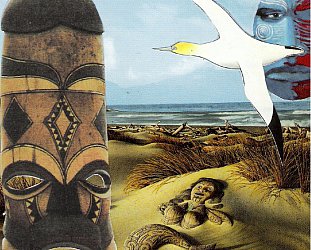
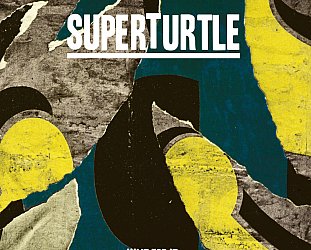
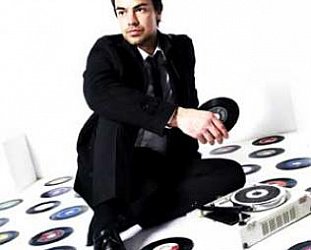


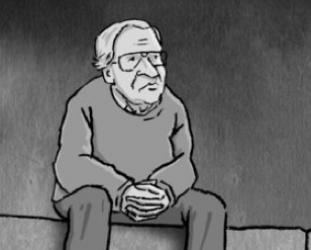
post a comment